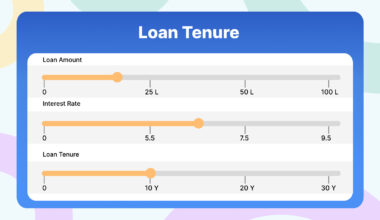DSA (Direct Selling Agent) is a term used primarily in the banking and financial services industry in India. A DSA acts as a representative or agent of a bank or financial institution and assists in sourcing and processing loan applications from customers.
Table of Contents Show
While the exact registration process and specific requirements may vary depending on the bank or financial institution you are interested in working with, we share a set of general guidelines involved in the DSA loan registration process in this blog. But let’s first understand who is a DSA and what is a DSA loan.
Who is a DSA?
DSA stands for Direct Selling Agent. A DSA is an individual or entity that acts as an intermediary or agent on behalf of a bank or financial institution to source and process loan applications from customers. DSAs play a significant role in expanding the reach of banks by reaching out to potential borrowers and assisting them in obtaining loans.
- DSAs act as representatives of banks or financial institutions. Their primary responsibility is to connect potential borrowers with the lending institution and facilitate the loan application process. They assist customers in understanding loan products, collecting necessary documentation, and submitting loan applications to the bank.
- DSAs are responsible for identifying potential loan applicants and marketing loan products to them. They may 3work in various ways, such as reaching out to individuals, businesses, or professionals, and promoting the benefits and features of the loans offered by the bank they represent.
- DSAs earn a commission or fee for successfully sourcing and facilitating loan applications. The commission structure is usually determined by the bank or financial institution. The commission may be based on factors such as the loan amount, the type of loan, and the DSA’s performance in generating loan business.
- DSAs often build networks and relationships within their local communities or professional circles to generate leads and connect with potential borrowers. They leverage their contacts and knowledge of the local market to identify individuals or businesses who may be interested in availing loans.
- DSAs are expected to adhere to the guidelines and regulations set by the bank or financial institution they are associated with. They must maintain ethical practices, ensure customer privacy and data security, and provide accurate information to borrowers.
What is a DSA Loan?
A DSA Loan refers to a loan that is sourced and processed by a Direct Selling Agent (DSA) on behalf of a bank or financial institution. A DSA loan can encompass various types of loans, including personal loans, home loans, car loans, business loans, etc.
DSA loans are subject to the same terms, conditions, and eligibility criteria as loans sourced through other channels, such as direct applications at bank branches or online platforms. The loan approval process, interest rates, repayment terms, and documentation requirements are typically determined by the lending institution.
How to Register as a DSA Loan Agent?
Here are the general steps involved in the DSA loan agent registration process:
- Visit your preferred bank or NBFC’s official website and submit your application.
- Proceed with payment.
- The bank or NBFC will reach out for document verification.
- Their legal team examines your documents, credit history, and score.
- If satisfied, the bank/NBFC sends the DSA agreement.
- Sign and submit the agreement.
- Receive a unique DSA loan agent ID.
Documents Required for DSA Registration
| Identity Proof | Copy of any one of these-
|
| Address Proof | Copy of any of these-
|
| Educational Qualification |
|
| Professional Certifications (If any) | If you hold any professional certifications relevant to the banking or financial industry, such as certifications in financial planning, insurance, or mutual funds, you may be required to provide copies of those certificates. |
| Proof of Business (If applicable) | If you are registering as a DSA on behalf of an existing business entity, you may need to provide documents related to your business, such as a Shop establishment certificate, GST (Goods and Services Tax) registration certificate, or Partnership deed (in the case of a partnership firm) |
| Passport Sized Photographs | You may be required to submit a few recent passport-sized photographs for identity verification and record-keeping purposes. |
Eligibility Criteria for DSA Registration Process
- The applicant should meet the minimum age requirement set by the bank. Generally, individuals equal to or more than 18 years of age are eligible for most loan products.
- The applicant could be salaried or non-salaried individuals, self-employed professionals, or business owners.
- The applicant must be a citizen of India
- Both, good credit history and CIBIL score are essential
- The applicant must be able to provide the necessary documentation as per the bank’s requirements.
- While it is not mandatory to present a degree in finance or banking, it is important for the applicant to have a thorough knowledge of the products that he/she would be selling as a DSA loan agent.
Apart from these, it must be noted that different loan products may have specific eligibility criteria based on their purpose. For example, home loans may consider factors such as property value, down payment, and the borrower’s ability to repay the loan. Similarly, business loans may require a business plan, financial statements, or collateral.
Conclusion: In conclusion, the DSA loan agent registration process involves researching and selecting a bank or financial institution, contacting them for application forms, providing the required documentation, undergoing background verification, completing training programs, signing the agreement, receiving a unique DSA code and kit, and finally, commencing your role as a loan agent.








